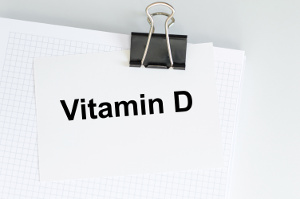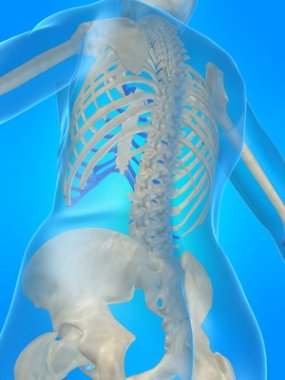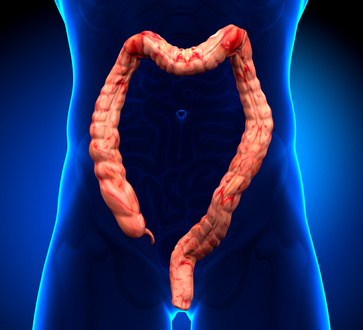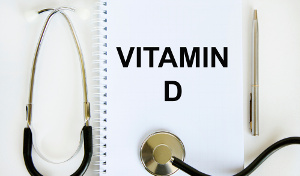 A chronic cough often follows in the wake of virus infections such as colds, influenza, and COVID-19. Lack of vitamin D seems to be a major contributor, coupled with the fact that a vitamin D deficiency often increases during the disease period. Vitamin D is of vital importance to a strong immune defense and also helps to regulate inflammation. Therefore, supplementation with vitamin D may be worth considering as a way of preventing virus infections and treating complications such as chronic cough, according to two studies that are published in European Respiratory Journal.
A chronic cough often follows in the wake of virus infections such as colds, influenza, and COVID-19. Lack of vitamin D seems to be a major contributor, coupled with the fact that a vitamin D deficiency often increases during the disease period. Vitamin D is of vital importance to a strong immune defense and also helps to regulate inflammation. Therefore, supplementation with vitamin D may be worth considering as a way of preventing virus infections and treating complications such as chronic cough, according to two studies that are published in European Respiratory Journal.
 Headache, aching joints, and other types of chronic pain are typically caused by myofascial pain syndrome, which is characterized by localized pain. There can be many underlying causes of this condition, but according to a Thai study published in BMC Nutrition, lack of sunshine and too little vitamin D are quite common among patients. Magnesium therapy may also have an effect, according to a study published in BMC Oral Health.
Headache, aching joints, and other types of chronic pain are typically caused by myofascial pain syndrome, which is characterized by localized pain. There can be many underlying causes of this condition, but according to a Thai study published in BMC Nutrition, lack of sunshine and too little vitamin D are quite common among patients. Magnesium therapy may also have an effect, according to a study published in BMC Oral Health.
A variety of common health problems are linked to low levels of the “sunshine vitamin”. Are you getting enough of this vital nutrient?
Depression is trigge red by many different factors, and many people in medical therapy for their condition are not treated for the actual cause. In prevention as well as in treatment, it is vital that the brain has a sufficient supply of energy and nutrients to help the nervous system function optimally.
red by many different factors, and many people in medical therapy for their condition are not treated for the actual cause. In prevention as well as in treatment, it is vital that the brain has a sufficient supply of energy and nutrients to help the nervous system function optimally.
A study has shown that patients with low vitamin D levels in the blood are at increased risk of serious complications or death after surgery, cardiac surgery excluded. For each 5 ng/ml increase of vitamin D in the blood the overall risk of death and complications after surgery decreased seven percent.
 Recent studies show a possible relation betwen too little vitamin D and the risk of developing autism. It is also alarming that many children are born with too little vitamin D or develop a deficiency later in life, as vitamin D controls numerous processes in the human brain.
Recent studies show a possible relation betwen too little vitamin D and the risk of developing autism. It is also alarming that many children are born with too little vitamin D or develop a deficiency later in life, as vitamin D controls numerous processes in the human brain.
 It is both healthy and life-extending to get plenty of summer sun, which is our main source of vitamin D. Just make sure not to get a sunburn. According to a large population study from University of South Australia, too little vitamin D in the blood is linked to early death, especially because of an increased risk of cardiovascular disease, cancer, and respiratory diseases. This is very relevant because, apart from the lack of sunshine during winter, things like sun awareness campaigns, indoor living, being overweight, and having dark skin can contribute to the widespread lack of vitamin D. The official recommendations for vitamin D intake are also comparatively conservative. Therefore, people should strive to optimize their levels of the nutrient, as vitamin D is involved in regulating countless gene activities and other functions in the body.
It is both healthy and life-extending to get plenty of summer sun, which is our main source of vitamin D. Just make sure not to get a sunburn. According to a large population study from University of South Australia, too little vitamin D in the blood is linked to early death, especially because of an increased risk of cardiovascular disease, cancer, and respiratory diseases. This is very relevant because, apart from the lack of sunshine during winter, things like sun awareness campaigns, indoor living, being overweight, and having dark skin can contribute to the widespread lack of vitamin D. The official recommendations for vitamin D intake are also comparatively conservative. Therefore, people should strive to optimize their levels of the nutrient, as vitamin D is involved in regulating countless gene activities and other functions in the body.
 Danish researchers have found a link between low levels of vitamin D in the blood and increased risk of early death. The alarming finding is published in the British Medical Journal.
Danish researchers have found a link between low levels of vitamin D in the blood and increased risk of early death. The alarming finding is published in the British Medical Journal.
 American scientists have demonstrated that measurements of vitamin D levels in patients with early stages of sclerosis may predict how fast the disease will progress. If levels are low it may be a sign of faster disease progression and also a sign that this development may be slowed down if the patients increase their vitamin D intake.
American scientists have demonstrated that measurements of vitamin D levels in patients with early stages of sclerosis may predict how fast the disease will progress. If levels are low it may be a sign of faster disease progression and also a sign that this development may be slowed down if the patients increase their vitamin D intake.
 Vitamin D deficiencies are very common. They increase children's risk of developing weak bones, but they also make adults more prone to osteoporosis.
Vitamin D deficiencies are very common. They increase children's risk of developing weak bones, but they also make adults more prone to osteoporosis.
 Yet another example of how vitamin D affects more than strong bones. A study has shown that babies whose mothers took vitamin D during pregnancy had a stronger hand grip and greater muscle mass. This improved muscle strength may also be able to improve their health later in life.
Yet another example of how vitamin D affects more than strong bones. A study has shown that babies whose mothers took vitamin D during pregnancy had a stronger hand grip and greater muscle mass. This improved muscle strength may also be able to improve their health later in life.
 More and more people boost their immune with help from Echinacea, ginger, smoothies, and juices packed with vitamin C, antioxidants and secondary immune-strengthening compounds. Nonetheless, none of these otherwise useful strategies can compensate for the widespread lack of vitamin D that is the underlying reason why so many of us contract virus infections during the winter period.
More and more people boost their immune with help from Echinacea, ginger, smoothies, and juices packed with vitamin C, antioxidants and secondary immune-strengthening compounds. Nonetheless, none of these otherwise useful strategies can compensate for the widespread lack of vitamin D that is the underlying reason why so many of us contract virus infections during the winter period.
 ALARM: We are getting far too little vitamin D
ALARM: We are getting far too little vitamin D
The recommended dietary intake of vitamin D in the UK is 17 times lower that it should ideally be in order to provide sufficient protection against disease. That is what two teams of US scientists have concluded independently of each other.
 In 2012 a Danish study was published in order to determine a possible correlation between, among others blood levels of vitamin D and deaths from all causes. This study has unnecessarily scared some from taking supplements of vitamin D, despite the fact that it showed that more than half of the participants suffered from vitamin D deficiency, and that only a minority had a very high vitamin D level, which not necessarily is the course of increased mortality.
In 2012 a Danish study was published in order to determine a possible correlation between, among others blood levels of vitamin D and deaths from all causes. This study has unnecessarily scared some from taking supplements of vitamin D, despite the fact that it showed that more than half of the participants suffered from vitamin D deficiency, and that only a minority had a very high vitamin D level, which not necessarily is the course of increased mortality.
 A recently published study shows promising results of giving daily supplements of vitamin D to sufferers of Crohn's disease. Apparently, the vitamin improves the intestinal barrier dysfunction associated with the ailment.
A recently published study shows promising results of giving daily supplements of vitamin D to sufferers of Crohn's disease. Apparently, the vitamin improves the intestinal barrier dysfunction associated with the ailment.
 We are constantly being warned about sun exposure and skin cancer. Still, it is important that we get plenty of vitamin D from sunshine - as long as we avoid getting burned. Vitamin D prevents and cures many diseases, and it may not only be the Mediterranean diet alone but the increased sun exposure and higher vitamin D levels that help people in Southern Europe avoid cardiovascular disease and other ailments.
We are constantly being warned about sun exposure and skin cancer. Still, it is important that we get plenty of vitamin D from sunshine - as long as we avoid getting burned. Vitamin D prevents and cures many diseases, and it may not only be the Mediterranean diet alone but the increased sun exposure and higher vitamin D levels that help people in Southern Europe avoid cardiovascular disease and other ailments.
Pantothenic acid originates from the Greek word pantos, which means everywhere. As the word suggests, this vitamins is found in both plants and animals. Vitamin B5 is water-soluble and because it does not get stored in the body we depend on regular intake of the nutrient. Vitamin B5 is destroyed by heating and freezing.
Researchers have found that individuals who are genetically prone to low vitamin D status have an increased risk of multiple sclerosis.
 A team of researchers from McGill University, Canada, has found a link between decreased vitamin D status and increased risk of multiple sclerosis (MS). In their study, which is published in PLOS Medicine, they compared data from thousands of participants with and without MS. As part of their research they looked at how genetic factors affected vitamin D levels in the participants. The researchers found that those people who were genetically prone to low vitamin D status were at least twice as likely to have MS. To explain their observations in more simple terms, when you increase a person's circulating levels of 25OHD (biologically active vitamin D) by 1.5-fold, it decreases their risk of developing MS by 50%.
A team of researchers from McGill University, Canada, has found a link between decreased vitamin D status and increased risk of multiple sclerosis (MS). In their study, which is published in PLOS Medicine, they compared data from thousands of participants with and without MS. As part of their research they looked at how genetic factors affected vitamin D levels in the participants. The researchers found that those people who were genetically prone to low vitamin D status were at least twice as likely to have MS. To explain their observations in more simple terms, when you increase a person's circulating levels of 25OHD (biologically active vitamin D) by 1.5-fold, it decreases their risk of developing MS by 50%.
 Women who get sufficient vitamin D is approximately one-third less likely to develop fibroids in the wall of the uterus, according to a U.S. study published in the journal Epidemiology. This study is the first to relate uterine fibroids to the level of vitamin D.
Women who get sufficient vitamin D is approximately one-third less likely to develop fibroids in the wall of the uterus, according to a U.S. study published in the journal Epidemiology. This study is the first to relate uterine fibroids to the level of vitamin D.
Patients with breast and colorectal cancer who have higher levels of vitamin D at the time of diagnosis may have a better chance of surviving their disease, say researchers.
 Lack of sleep is common among children and adults. It increases the risk of overweight, diabetes, cardiovascular diseases, blood clots, depression, infections, and a number of other diseases. Lack of vitamin D is also common, but a team of Chinese scientists have revealed that there is a link between having too little vitamin D and not being able to sleep properly and waking up feeling refreshed.
Lack of sleep is common among children and adults. It increases the risk of overweight, diabetes, cardiovascular diseases, blood clots, depression, infections, and a number of other diseases. Lack of vitamin D is also common, but a team of Chinese scientists have revealed that there is a link between having too little vitamin D and not being able to sleep properly and waking up feeling refreshed.
 Millions of people worldwide drink arsenic-polluted water regularly. Arsenic is a toxin that is known to cause different types of cancer, including skin cancer. According to a new study published in American Journal of Cancer Research, it looks as if the active form of vitamin D, calcitriol, can prevent the onset of arsenic-induced skin cancer in a special type of skin cells. Calcitriol also appears to be able to prevent other types of cancer caused by arsenic.
Millions of people worldwide drink arsenic-polluted water regularly. Arsenic is a toxin that is known to cause different types of cancer, including skin cancer. According to a new study published in American Journal of Cancer Research, it looks as if the active form of vitamin D, calcitriol, can prevent the onset of arsenic-induced skin cancer in a special type of skin cells. Calcitriol also appears to be able to prevent other types of cancer caused by arsenic.
 - are you getting enough, though?
- are you getting enough, though?
Studies that have been published over the past decades reveal how vitamin D plays an important role in cancer prevention. Studies also show that most of us lack vitamin D. Nonetheless, vitamin D supplements can make a difference, and research suggests that we need more than the official recommendations.
A new scientific study has shown that supplements of vitamin D3 equivalent to a D-vitamin capsule of 20 micrograms daily may reduce older people's risk of developing heart failure by 20-25%. The study has included data from 21 trials involving more than 13,000 elderly persons.
Even at very high intake levels, vitamin D does not appear to cause toxicity, an American study reveals.
 Some experts have warned people against taking vitamin D in doses that exceed the recommended daily allowance (RDA), claiming that excess vitamin D may lead to problems such as hypercalcemia, a condition characterized by elevated blood calcium levels that may cause weakness, kidney stones, and brain and heart disturbances. However, a study conducted by Mayo Clinic researchers has shown that vitamin D toxicity is not really an issue. The team of scientists analyzed blood data collected in the period 2002-2011 from patients in the Rochester Epidemiology Project and made some interesting observations.
Some experts have warned people against taking vitamin D in doses that exceed the recommended daily allowance (RDA), claiming that excess vitamin D may lead to problems such as hypercalcemia, a condition characterized by elevated blood calcium levels that may cause weakness, kidney stones, and brain and heart disturbances. However, a study conducted by Mayo Clinic researchers has shown that vitamin D toxicity is not really an issue. The team of scientists analyzed blood data collected in the period 2002-2011 from patients in the Rochester Epidemiology Project and made some interesting observations.
- find the right balance and make sure to get enough of the essential vitamin
 It is a known fact that too much sun gives you wrinkles and increases your risk of skin cancer. However, fearmongering and new lifestyle habits have resulted in widespread vitamin D deficiency, especially because of getting too little sun exposure and using too much suncream. This could have grave consequences. Several studies show that people who stay out of the sun have an increased risk of neurological disorders, sclerosis, and premature death from heart disease and cancer. Make sure to expose yourself to sufficient amounts of sunlight during the summer period, so your skin can synthesize enough vitamin D – but be responsible. If this is a challenge, vitamin D supplements are a good alternative.
It is a known fact that too much sun gives you wrinkles and increases your risk of skin cancer. However, fearmongering and new lifestyle habits have resulted in widespread vitamin D deficiency, especially because of getting too little sun exposure and using too much suncream. This could have grave consequences. Several studies show that people who stay out of the sun have an increased risk of neurological disorders, sclerosis, and premature death from heart disease and cancer. Make sure to expose yourself to sufficient amounts of sunlight during the summer period, so your skin can synthesize enough vitamin D – but be responsible. If this is a challenge, vitamin D supplements are a good alternative.
 Epidemiological studies have led to different results when it comes to vitamin D and its ability to protect against cancer, infections, and various diseases. However, according to a new study published in Cancer Research, this is because magnesium is involved in the activation of vitamin D, on which all cells depend. It therefore does no good to take supplements of vitamin D, if you lack magnesium. And this is exactly the case with many people who eat unhealthy diets, are stressed, use medicine etc.
Epidemiological studies have led to different results when it comes to vitamin D and its ability to protect against cancer, infections, and various diseases. However, according to a new study published in Cancer Research, this is because magnesium is involved in the activation of vitamin D, on which all cells depend. It therefore does no good to take supplements of vitamin D, if you lack magnesium. And this is exactly the case with many people who eat unhealthy diets, are stressed, use medicine etc.
 A chronic cough often follows in the wake of virus infections such as colds, influenza, and COVID-19. Lack of vitamin D seems to be a major contributor, coupled with the fact that a vitamin D deficiency often increases during the disease period. Vitamin D is of vital importance to a strong immune defense and also helps to regulate inflammation. Therefore, supplementation with vitamin D may be worth considering as a way of preventing virus infections and treating complications such as chronic cough, according to two studies that are published in European Respiratory Journal.
A chronic cough often follows in the wake of virus infections such as colds, influenza, and COVID-19. Lack of vitamin D seems to be a major contributor, coupled with the fact that a vitamin D deficiency often increases during the disease period. Vitamin D is of vital importance to a strong immune defense and also helps to regulate inflammation. Therefore, supplementation with vitamin D may be worth considering as a way of preventing virus infections and treating complications such as chronic cough, according to two studies that are published in European Respiratory Journal.













 Recent studies show a possible relation betwen too little
Recent studies show a possible relation betwen too little  It is both healthy and life-extending to get plenty of summer sun, which is our main source of
It is both healthy and life-extending to get plenty of summer sun, which is our main source of  Danish researchers have found a link between low levels of vitamin D in the blood and increased risk of early death. The alarming finding is published in the British Medical Journal.
Danish researchers have found a link between low levels of vitamin D in the blood and increased risk of early death. The alarming finding is published in the British Medical Journal. American scientists have demonstrated that measurements of vitamin D levels in patients with early stages of sclerosis may predict how fast the disease will progress. If levels are low it may be a sign of faster disease progression and also a sign that this development may be slowed down if the patients increase their vitamin D intake.
American scientists have demonstrated that measurements of vitamin D levels in patients with early stages of sclerosis may predict how fast the disease will progress. If levels are low it may be a sign of faster disease progression and also a sign that this development may be slowed down if the patients increase their vitamin D intake. Vitamin D deficiencies are very common. They increase children's risk of developing weak bones, but they also make adults more prone to osteoporosis.
Vitamin D deficiencies are very common. They increase children's risk of developing weak bones, but they also make adults more prone to osteoporosis. Yet another example of how vitamin D affects more than strong bones. A study has shown that babies whose mothers took vitamin D during pregnancy had a stronger hand grip and greater muscle mass. This improved muscle strength may also be able to improve their health later in life.
Yet another example of how vitamin D affects more than strong bones. A study has shown that babies whose mothers took vitamin D during pregnancy had a stronger hand grip and greater muscle mass. This improved muscle strength may also be able to improve their health later in life. More and more people boost their immune with help from Echinacea, ginger, smoothies, and juices packed with vitamin C, antioxidants and secondary immune-strengthening compounds. Nonetheless, none of these otherwise useful strategies can compensate for the widespread lack of vitamin D that is the underlying reason why so many of us contract virus infections during the winter period.
More and more people boost their immune with help from Echinacea, ginger, smoothies, and juices packed with vitamin C, antioxidants and secondary immune-strengthening compounds. Nonetheless, none of these otherwise useful strategies can compensate for the widespread lack of vitamin D that is the underlying reason why so many of us contract virus infections during the winter period. ALARM: We are getting far too little vitamin D
ALARM: We are getting far too little vitamin D In 2012 a Danish study was published in order to determine a possible correlation between, among others blood levels of vitamin D and deaths from all causes. This study has unnecessarily scared some from taking supplements of vitamin D, despite the fact that it showed that more than half of the participants suffered from vitamin D deficiency, and that only a minority had a very high vitamin D level, which not necessarily is the course of increased mortality.
In 2012 a Danish study was published in order to determine a possible correlation between, among others blood levels of vitamin D and deaths from all causes. This study has unnecessarily scared some from taking supplements of vitamin D, despite the fact that it showed that more than half of the participants suffered from vitamin D deficiency, and that only a minority had a very high vitamin D level, which not necessarily is the course of increased mortality. A recently published study shows promising results of giving daily supplements of vitamin D to sufferers of Crohn's disease. Apparently, the vitamin improves the intestinal barrier dysfunction associated with the ailment.
A recently published study shows promising results of giving daily supplements of vitamin D to sufferers of Crohn's disease. Apparently, the vitamin improves the intestinal barrier dysfunction associated with the ailment. We are constantly being warned about sun exposure and skin cancer. Still, it is important that we get plenty of
We are constantly being warned about sun exposure and skin cancer. Still, it is important that we get plenty of  A team of researchers from McGill University, Canada, has found a link between decreased vitamin D status and increased risk of multiple sclerosis (MS). In their study, which is published in PLOS Medicine, they compared data from thousands of participants with and without MS. As part of their research they looked at how genetic factors affected vitamin D levels in the participants. The researchers found that those people who were genetically prone to low vitamin D status were at least twice as likely to have MS. To explain their observations in more simple terms, when you increase a person's circulating levels of 25OHD (biologically active vitamin D) by 1.5-fold, it decreases their risk of developing MS by 50%.
A team of researchers from McGill University, Canada, has found a link between decreased vitamin D status and increased risk of multiple sclerosis (MS). In their study, which is published in PLOS Medicine, they compared data from thousands of participants with and without MS. As part of their research they looked at how genetic factors affected vitamin D levels in the participants. The researchers found that those people who were genetically prone to low vitamin D status were at least twice as likely to have MS. To explain their observations in more simple terms, when you increase a person's circulating levels of 25OHD (biologically active vitamin D) by 1.5-fold, it decreases their risk of developing MS by 50%. Women who get sufficient vitamin D is approximately one-third less likely to develop fibroids in the wall of the uterus, according to a U.S. study published in the journal Epidemiology. This study is the first to relate uterine fibroids to the level of vitamin D.
Women who get sufficient vitamin D is approximately one-third less likely to develop fibroids in the wall of the uterus, according to a U.S. study published in the journal Epidemiology. This study is the first to relate uterine fibroids to the level of vitamin D. Lack of sleep is common among children and adults. It increases the risk of overweight, diabetes, cardiovascular diseases, blood clots, depression, infections, and a number of other diseases. Lack of
Lack of sleep is common among children and adults. It increases the risk of overweight, diabetes, cardiovascular diseases, blood clots, depression, infections, and a number of other diseases. Lack of  Millions of people worldwide drink arsenic-polluted water regularly. Arsenic is a toxin that is known to cause different types of cancer, including skin cancer. According to a new study published in American Journal of Cancer Research, it looks as if the active form of vitamin D, calcitriol, can prevent the onset of arsenic-induced skin cancer in a special type of skin cells. Calcitriol also appears to be able to prevent other types of cancer caused by arsenic.
Millions of people worldwide drink arsenic-polluted water regularly. Arsenic is a toxin that is known to cause different types of cancer, including skin cancer. According to a new study published in American Journal of Cancer Research, it looks as if the active form of vitamin D, calcitriol, can prevent the onset of arsenic-induced skin cancer in a special type of skin cells. Calcitriol also appears to be able to prevent other types of cancer caused by arsenic. - are you getting enough, though?
- are you getting enough, though? Some experts have warned people against taking vitamin D in doses that exceed the recommended daily allowance (RDA), claiming that excess vitamin D may lead to problems such as hypercalcemia, a condition characterized by elevated blood calcium levels that may cause weakness, kidney stones, and brain and heart disturbances. However, a study conducted by Mayo Clinic researchers has shown that vitamin D toxicity is not really an issue. The team of scientists analyzed blood data collected in the period 2002-2011 from patients in the Rochester Epidemiology Project and made some interesting observations.
Some experts have warned people against taking vitamin D in doses that exceed the recommended daily allowance (RDA), claiming that excess vitamin D may lead to problems such as hypercalcemia, a condition characterized by elevated blood calcium levels that may cause weakness, kidney stones, and brain and heart disturbances. However, a study conducted by Mayo Clinic researchers has shown that vitamin D toxicity is not really an issue. The team of scientists analyzed blood data collected in the period 2002-2011 from patients in the Rochester Epidemiology Project and made some interesting observations. It is a known fact that too much sun gives you wrinkles and increases your risk of skin cancer. However, fearmongering and new lifestyle habits have resulted in widespread
It is a known fact that too much sun gives you wrinkles and increases your risk of skin cancer. However, fearmongering and new lifestyle habits have resulted in widespread  Epidemiological studies have led to different results when it comes to
Epidemiological studies have led to different results when it comes to  "After about one week of taking the Q10 supplement I could feel a huge difference," says 23-year old Alan Piccini, who has been suffering from extreme fatigue and muscle aches ever since he was a child.
"After about one week of taking the Q10 supplement I could feel a huge difference," says 23-year old Alan Piccini, who has been suffering from extreme fatigue and muscle aches ever since he was a child. “Taking capsules with co-enzyme Q10 has freed me of the severe side effects of my cholesterol lowering medicine,” Mrs Franken explains.
“Taking capsules with co-enzyme Q10 has freed me of the severe side effects of my cholesterol lowering medicine,” Mrs Franken explains.